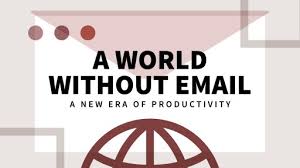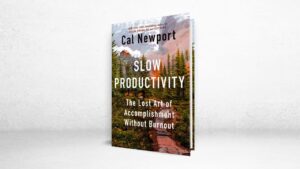“A World Without Email: Reimagining Work in an Age of Communication Overload” by Cal Newport explores the challenges of the modern workplace and proposes strategies to improve productivity and reduce the overwhelming nature of email communication. Here are the key takeaways from the book:
- The Email Problem: Newport argues that email has become a source of constant distraction and a major contributor to information overload, diminishing productivity and increasing stress in the workplace.
- The Hyperactive Hive Mind: Newport introduces the concept of the “hyperactive hive mind,” a state in which people are constantly reacting to incoming messages, making it difficult to focus on deep, meaningful work.
- The Impact on Productivity: The book examines how the constant checking and responding to emails disrupts the ability to engage in focused, valuable work. It suggests that the prevailing email culture is a significant hindrance to productivity.
- The Idea of Attention Capital: Newport introduces the concept of attention capital, likening attention to a valuable resource that needs to be protected and spent wisely. Constant email checking depletes this resource.
- The Role of Task Relevance: Newport emphasizes the importance of focusing on tasks that truly matter and contribute to one’s goals rather than being driven solely by the urgency of incoming messages.
- Deep Work Principles: The book builds on Newport’s previous work on “Deep Work” and advocates for carving out dedicated, uninterrupted blocks of time for focused, deep work without the constant interruption of email.
- Reducing Email Dependence: Newport proposes strategies to reduce dependence on email, such as implementing communication strategies that minimize back-and-forth messages and embracing alternative tools for team collaboration.
- Implementing Processes and Protocols: The book suggests creating processes and protocols for communication that are more structured and efficient, reducing the need for constant email exchanges.
- The Importance of Planning: Newport emphasizes the role of planning in managing one’s time and tasks effectively. This involves setting clear priorities and boundaries for communication.
- A Vision for the Future of Work: “A World Without Email” concludes with a vision for a future workplace where communication is more intentional, less distracting, and where individuals can engage in deep, meaningful work without constant interruptions.
In essence, Cal Newport’s “A World Without Email” challenges the prevailing email-centric work culture and proposes a reimagined approach to work that prioritizes deep, focused work and values attention as a precious resource. The book encourages individuals and organizations to reconsider their communication practices in order to enhance productivity and well-being in the modern workplace.




